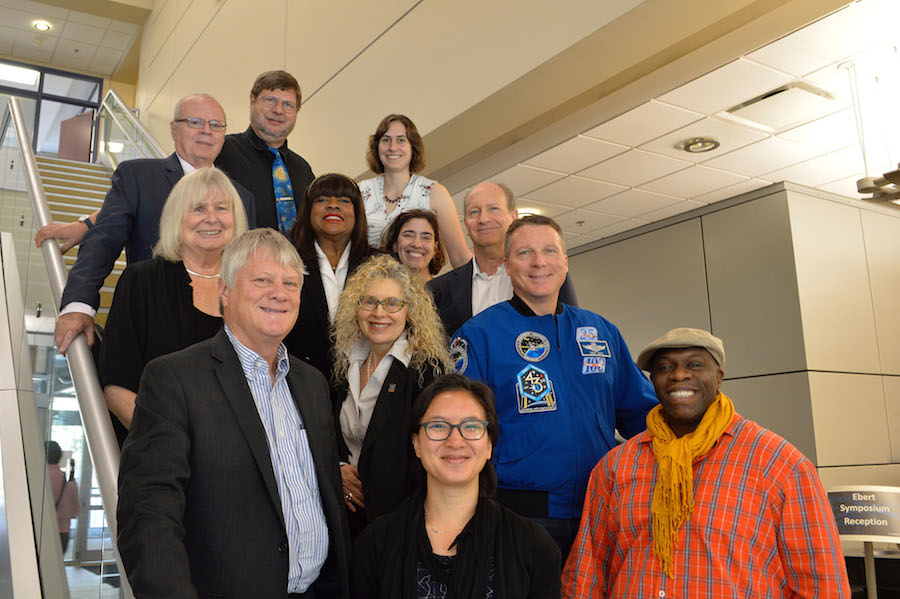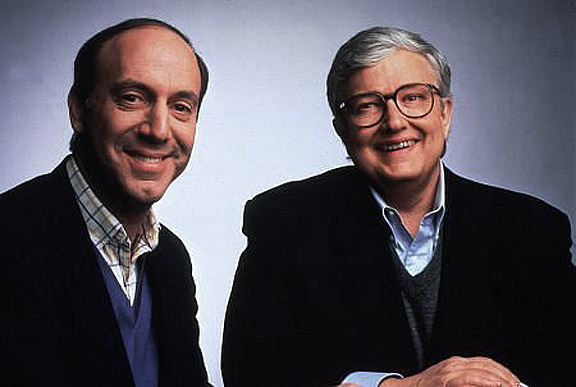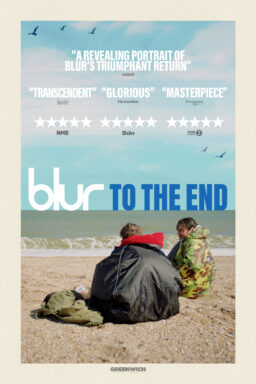Merry Christmas! This past May, the United States successfully launched the Insight Lander and even now it is beaming back images from Mars that were impossible to imagine a short year ago. When President Kennedy called for a “moon shot” back in 1961, at a time when space travel was thought to be science-fiction, little did we know that within less than ten years of his pronouncements, we would have a man on the moon. With all the current talk about colonizing Mars, how soon will it be before we bring to real life the scenes from “Interstellar” where we are growing crops on the red planet? And what does it all mean to us anyway, and why should we care?

We tackled these and other questions in our very first Ebert Center Symposium “Empathy for the Universe: Storytelling and Visualization: at the University of Illinois back in October, and it has had a profound impact on me. We assembled notable astronauts and astrophysicists, documentary directors, academic experts, journalists, agriculture experts, Afro-futuriststs, and new media specialists to explore how storytelling with emerging data visualization technologies and research-based narratives can elicit a deeper understanding of the human and scientific forces within our society and the universe. We explored how science is the most meaningful when it relates to humanity and making things better for an inclusive society, including other sentient beings and our ecological landscape.
Not only do I look at the sky differently, searching for the moon and the various constellations of stars and planets, but I look at the earth and the seas differently. I marvel at the mathematical improbability of us living at all, and I value the life of each person as a miracle. When I am sitting in traffic, I think about astronaut Terry Virts saying that once he looked down on the earth and saw the lights of the United States, France and the Middle-East, the concept of borders and interconnectedness took on a whole different meaning, and now he feels like a citizen of the world wherever he goes.
Today, on this day of Christmas, I come to the same conclusion as I did at the Symposium, it all boils down to L-O-V-E. And that’s a scientific fact. I woke up this morning thinking about Katie Mack (Astro-Katie) and her phenomenal poem called “Disorientation.” She gave me permission to reprint it. I hope that your day today is disoriented by thoughts of creation both large and small, and that love for all becomes your major disruptor.

Panel #1: “Science on the Screen,” featuring Terry Virts, astronaut and “A Beautiful Planet” cinematographer; Toni Myers, writer/director of “A Beautiful Planet”; Doron Weber, Program Director at the Alfred P. Sloan Foundation (received a Humanitarian Award); Nate Kohn, Ebertfest festival director; Donna J. Cox, director of the Advanced Visualization Library; and Brand Fortner, teaching professor at North Carolina State University. Myers shared a powerful scene from her 1990 documentary short, “Blue Planet,” where astronaut Jim Buchli regards the earth’s atmosphere from his perch in a space shuttle. “Everything past that thin blue line is a void of space,” he observed. “Everything below it is what it takes to sustain life. And everything that we do to this environment, and our quality of life, is below that little thin blue line. That’s the only difference between what we enjoy here on earth and the really harsh, uninhabitable blackness of space. That’s not very wide, is it?” Virts said that making Myer’s IMAX movie was the most important thing he did during his seven months in space. “It has impacted so many people, and at the end of the day, people are what matter most,” Virts said.

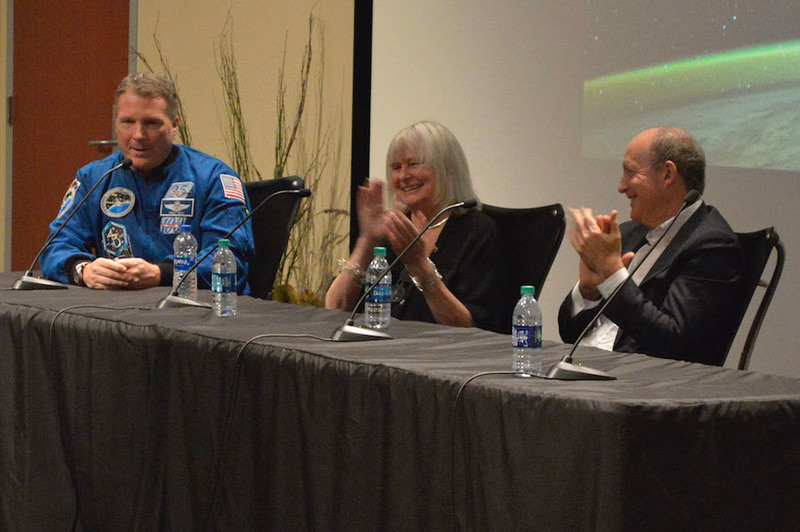

Panel #2: “Story Framing and Visualization,” featuring Katie Mack, astronomer and creator of the popular Twitter handle @AstroKatie; Karrie Karahalios, professor of computer science; and Brant Houston, professor of investigative and advanced reporting. In her presentation on the history of space, she illustrated how the origins of the universe began not with stars but with static. “The universe is expanding and the space between galaxies is getting bigger,” she said. “There’s no center of this expansion, so there is no center of the universe unless you think, technically, we are each the centers of our own observable universe. In the beginning, everything was on top of everything else. When we are looking at the cosmos, we are looking back in time.” Read Katie’s remarkable poem, “Disorientation,” here.

Panel #3: “Inclusion and Interconnectedness in Arts and Sciences,” featuring Temple Grandin, celebrated inventor and designer of facilities built to sustain humane treatment of livestock; Stacey Robinson, assistant professor of graphic design whose work discusses ideas of “Black Utopias”; Rachel Switzky, director of the Siebel Center for Design at the University of Illinois; and Anita Chan, associate professor in the Department of Media and Cinema Studies at the University of Illinois. “I’m a visual thinker,” explained Grandin. “Everything I think about is a picture, and that helped me in my work with livestock, because they live in a sensory-based world. If you want to understand animals, get away from language.” Grandin stressed that living with autism has proven enormously beneficial to the world. “Your iPhone wouldn’t exist without autism,” she said, garnering big applause. “I have been to Silicon Valley. Half of those programmers are on the spectrum. You know what I learned when I visited NASA? The ‘right stuff’ rode the rockets, but the geeks and the nerds and the misfits—they built the stuff!”

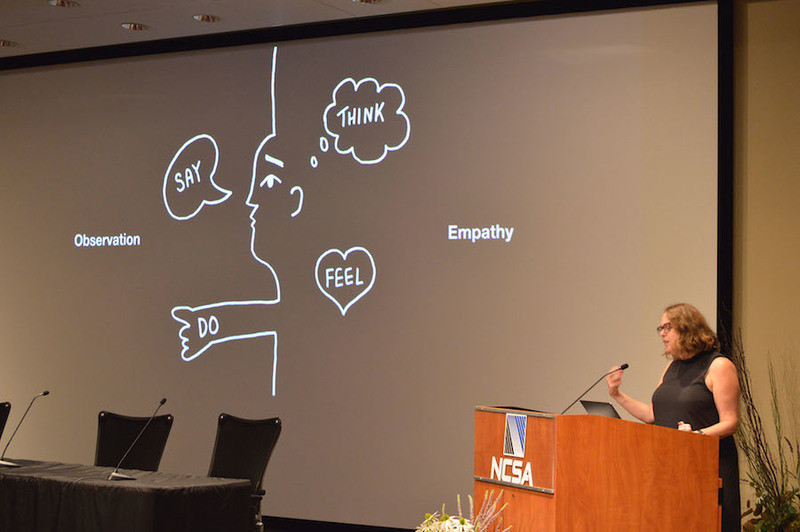
The day concluded with a free screening of “A Beautiful Planet” at the Goodrich Savoy 16 IMAX theater in Savoy, Illinois. The theater co-sponsored the event. Jennifer Lawrence served as the voice of narration, while NCSA’s Advanced Visualization Laboratory collaborated on the opening and closing virtual scenes of flight through intergalactic space, based on scientific data.



